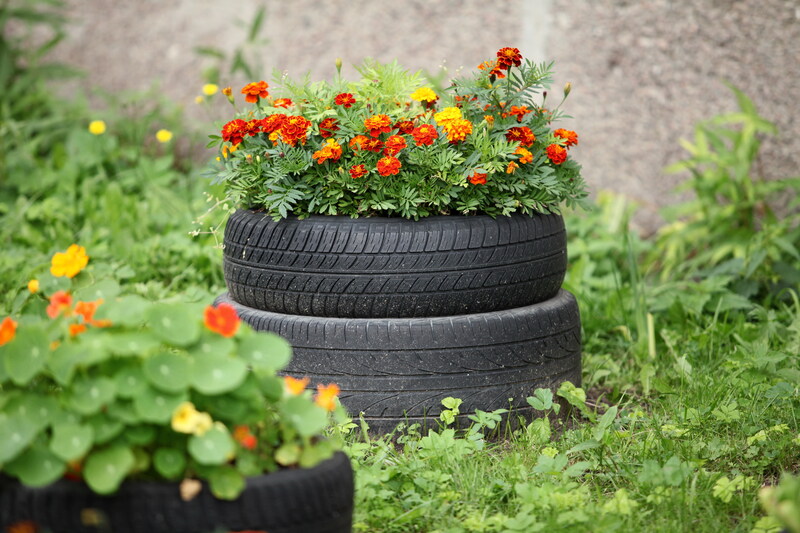Proven Ways to Reduce Garden Waste
Posted on 14/09/2024
Maintaining a beautiful and thriving garden often generates a significant amount of waste. Twigs, leaves, grass clippings, and other organic material can quickly accumulate, leading to overflowing compost bins and unwanted landfill contributions. Fortunately, there are several proven ways to reduce garden waste while promoting sustainability and efficiency. Here's a detailed guide to help you manage your garden responsibly.
1. Composting
Composting is one of the most effective ways to reduce garden waste. It involves breaking down organic material into nutrient-rich compost, which can be used to enrich your garden soil.
How to Start Composting
- Select a compost bin: Choose a bin that suits your garden size and needs. There are various types, including tumbler bins, stationary bins, and worm bins.
- Layer your compost: Start with a mix of green waste (grass clippings, vegetable scraps) and brown waste (dry leaves, twigs). Alternate layers to maintain balance.
- Maintain moisture and aeration: Make sure your compost remains moist but not waterlogged. Turn it occasionally to supply oxygen, which accelerates decomposition.

2. Mulching
Mulching is another highly effective method for reducing garden waste. It involves spreading a layer of material on the soil surface to retain moisture, regulate temperature, and suppress weeds.
Benefits of Mulching
- Reduces the need for watering: Mulch conserves water by limiting evaporation.
- Improves soil health: Organic mulch decomposes, releasing essential nutrients into the soil.
- Suppresses weeds: By blocking sunlight, mulch helps prevent weed growth.
3. Grasscycling
Grasscycling refers to leaving grass clippings on the lawn after mowing. Instead of bagging and disposing of them, grass clippings decompose naturally, returning valuable nutrients to the soil.
Steps for Successful Grasscycling
- Mow regularly: Frequent mowing ensures that clippings are small and decompose quickly.
- Use a mulching mower: These mowers are designed to cut grass clippings into smaller pieces, making them easier to decompose.
- Don't over-fertilize: Excessive fertilization can lead to thick thatch layers. Moderate fertilization encourages healthier grasscycling.
4. Reusing and Recycling Garden Waste
Finding creative ways to reuse garden waste can significantly reduce the amount you need to dispose of.
Ideas for Reuse
- Leaf mold: Collect fallen leaves and allow them to decompose into leaf mold, a valuable soil conditioner.
- Wood chips: Shred branches and twigs to create wood chips, which can be used as mulch.
Recycling Initiatives
- Green waste collection: Many municipalities offer green waste collection services that recycle garden waste into compost or mulch.
- Community gardens: Donate your excess organic material to local community gardens where it can be used productively.
5. Rainwater Harvesting
Reducing garden waste isn't just about managing organic material. Efficient water use can also play a significant role.
How to Implement Rainwater Harvesting
- Install rain barrels: Place barrels under downspouts to collect rainwater, which can be used for irrigation.
- Use drip irrigation: This method minimizes water waste by delivering water directly to plant roots.
6. Plant Selection
Choosing the right plants can minimize maintenance and reduce garden waste.
Low-Maintenance Plants
- Native species: Plants native to your region are typically well-adapted to local conditions and require less maintenance.
- Perennials: These plants live for several years, reducing the need for replanting and generating less waste.
7. Pruning and Trimming Techniques
Proper pruning and trimming techniques can help maintain plant health and reduce the amount of waste generated.
Best Practices for Pruning
- Prune during the dormant season: This timing minimizes stress on plants and reduces the amount of waste.
- Use sharp tools: Clean cuts heal faster, promoting plant health and reducing the need for additional trimming.
8. Worm Farming (Vermiculture)
Worm farming is an excellent way to reduce organic waste and produce nutrient-rich compost for your garden.
Setting Up a Worm Farm
- Choose a worm bin: Select a container with good ventilation and drainage.
- Add bedding: Use materials like shredded newspaper or coconut coir.
- Introduce worms: Red wigglers are the most effective for composting.
- Feed the worms: Provide a balanced diet of fruit scraps, vegetable peels, and other kitchen waste.
9. Grass Regulation and Lawn Alternatives
Traditional lawns can generate significant waste. Using lawn alternatives can help reduce this impact.
Lawn Alternatives
- Ground covers: Plants like clover and creeping thyme can replace grass and require less maintenance.
- Meadow gardens: Plant native wildflowers to create low-maintenance, waste-free meadow gardens.

10. Education and Community Involvement
Being informed and engaging with your community can also help in reducing garden waste.
Educational Workshops
- Gardening workshops: Attend or organize workshops focused on sustainable gardening practices.
- Composting classes: Learn advanced composting techniques to increase efficiency.
Community Initiatives
- Community composting programs: Participate in or initiate local composting projects.
- Garden waste exchange: Set up platforms where gardeners can exchange or donate excess materials.
Final Thoughts
Reducing garden waste is crucial for maintaining a sustainable and eco-friendly garden. By implementing techniques like composting, mulching, grasscycling, and rainwater harvesting, you can significantly minimize waste and contribute positively to the environment. Additionally, involving yourself in community initiatives and choosing appropriate plants can further enhance your garden's sustainability. Embrace these proven methods, and transform your garden into a waste-efficient, thriving ecosystem.
Latest Posts
Planet-Friendly Disposal Strategies
House Waste Removal Made Easy: Top 5 Tools
Hard Rubbish: Identification & Disposal Tips





